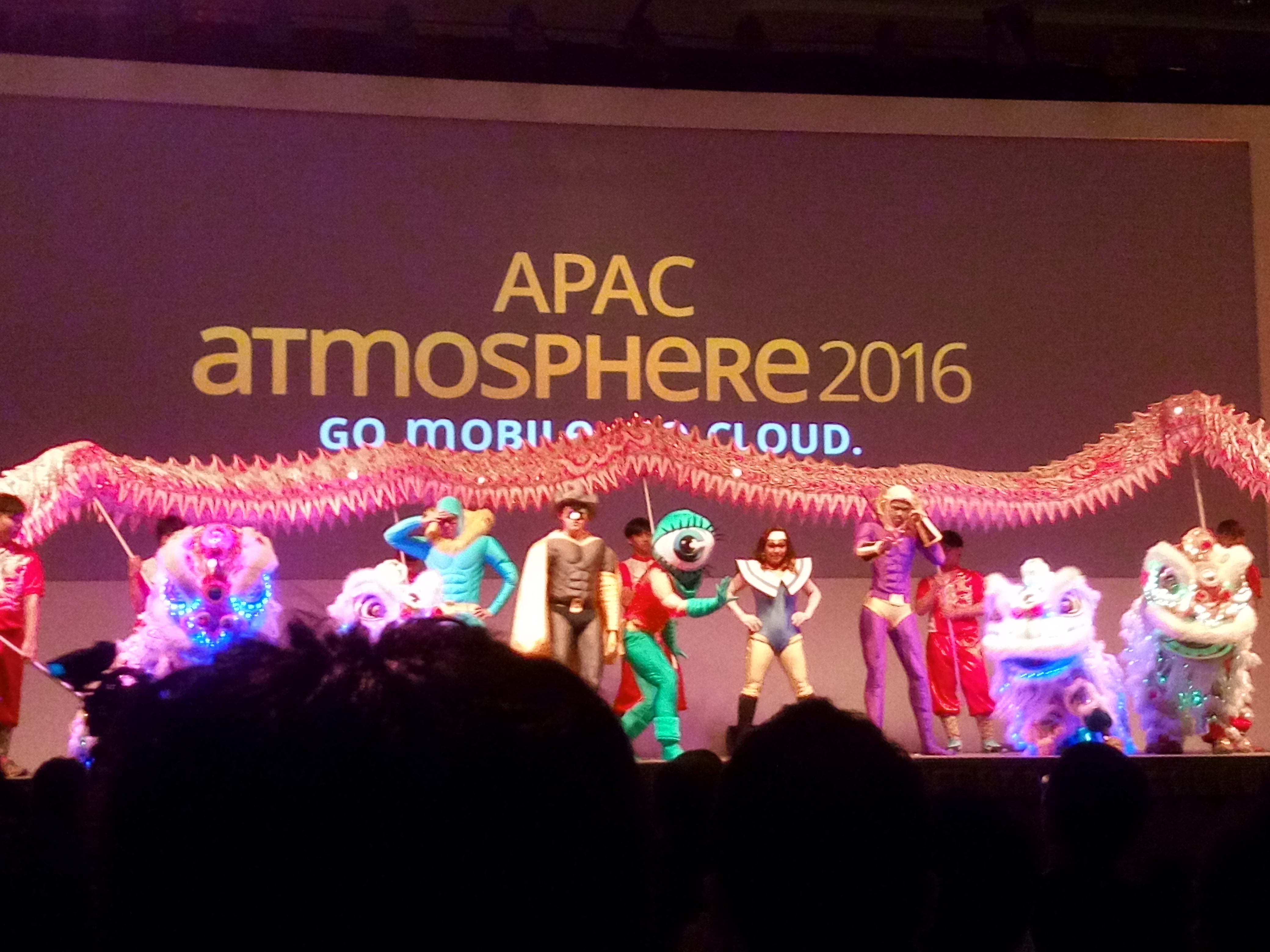Aruba’s APAC Atmosphere 2016 held in Singapore started with a literal bang with lion dancers and a long dragon snaking its way through the audience and the announcement of its Aruba Mobile First platform that is built on the Aruba OS8.0 operating system.
The platform simplifies how users are able to change and scale their network infrastructure, upload and deploy apps, enable policy management, analyse customer behaviour data and add IoT devices to the network. What follows outlines some of the technology, that was showcased during the event, which takes workplace computing into the realms of science fiction.
Security
Let’s face it – security has always been an issue for network administrators as the more secure the network is, the more troublesome it is for the end user. I have worked in organisations where network administrators were constantly hammered by complaints from senior management because they found it too difficult to remember passwords and to enter in codes from security tokens within the timeframe allocated for the process.

“Security and usability are diametrically opposed,” agreed Keerti Melkote, founder and chief technology officer, Aruba, adding that security is a high bar to jump over for most IT departments. Which is why the company has been working with one of its Mobile First Platform partners, Kasada, to reduce this annoyance factor.
Kasada developed a multi-factor authentication protocol, to work with Aruba’s ClearPass Policy Manager, that allows users to use a photograph on their mobile phone to sign into the network. “A photo is unique, it’s hard to crack and yet it’s easy to remember and so we make [security] easier to use,” said Melkote.
I think that’s the type of security even busy, time poor users will be able to live with.
Next-gen productivity
During the event, I was taken on a tour of a productivity cube, a prototype of an intelligent meeting room, that Aruba HPE had built in their Tech Playground area. It was vision of how meeting rooms would be built in the future. The first thing you notice is the strip of green LED lights around the exterior of the cube. This changes to red as you enter the room and sign in using your mobile phone.
“How many times have you had your meeting interrupted by people sticking their head in the door to see if the room is occupied,” asked Ron Irvine, global director of network and mobility consulting Hewlett Packard Enterprise. The red ‘in use’ indicator hopefully will prevent these occurrences.
Once you sign into the computers within the cube it provides you with your frequently used applications such as Skype for making video calls or a Sharepoint document collaboration app.
It also interfaces with your calendar to let people know where you are, so they can come to you.
It caused considerable excitement when I related this experience to a friend of mine, who thought this worked better than her personal assistant. She works on a large campus and her day is full of back to back meetings. It’s ok when the meetings are in the same room or in the same building for that matter. It becomes a hassle when she has to wrap up her meeting early to get to the next meeting in another building.
With such technology in play, it would make life easier for her as people could come to her or know where she was so that she has a few minutes grace to leg it over to the next building.
The Power of Community
During the course of the event it became clear that organisations are using online communities to cause a paradigm shift in the way they do business.
Aruba has a community of users that it colourfully calls Airheads – who are typically technical people, users of Aruba products and advocates for mobility and Aruba.

“Joining the Airhead community doesn’t take much – you just need to apply to the online group forum, ” said Chris Kozup, vice president of marketing, Aruba.
He added that the community started with a group of 40 people in 2006 and has grown to almost 50,000 strong in the last 10 years.
One of the key benefits of this community is a reduction in support calls for Aruba. “As users engage with their peers after the initial purchase …they solve problems within the community,” added Kozup.
Aruba’s Airheads can choose to complete exams to become certified in Aruba technology. There are no prerequisites for the entry level exam and once a person has this he or she can then continue to build on these by taking the exams at mid level and expert level, said Kozup.
These are additional skills and engineers become more employable with these certification.
Atmosphere is held three times a year in different locations to bring this community together.
Azran Osman-Rani Chief Executive Officer, iflix Malaysia and Chief Operating Officer, iflix Group, related how his organisation was using its online community to draw people to their Internet TV on demand platform.
The company recognised that it would have to compete with pirated content – it is a reality and they had to make their product offering attractive and different to draw people in.

“We noticed that millennials are socially more connected and like to engage with community,” said Osman-Rani.
“So we set about to create a socially immersive TV experience,” he added.
iflix did this by signing up 50 plus celebrities to engage with fans and share their favourite music and movies, it used newsfeeds and created an innovative chatting platform using Twitch that allows viewers to see what other fans thought and felt at the time they watched a particular segment of a TV show. iflix also incorporates comments from directors and actors to add colour.
Finally, it organises events to bring fans together in the real world – a recent hackathon event for fans of the TV show, Mr Robot, is one example.
Your mobile phone
If it wasn’t clear before let me make it crystal – your mobile phone is going to be the most important thing you ever own. Your identity is going to be tied to it and you will need it to sign into the work network, the home network, access entertainment, or to even get support for products you use. So choose your phone wisely, take care of it, lock it and never ever leave home without it.
(This journalist was a guest of Aruba Networks’ to this annual event).








